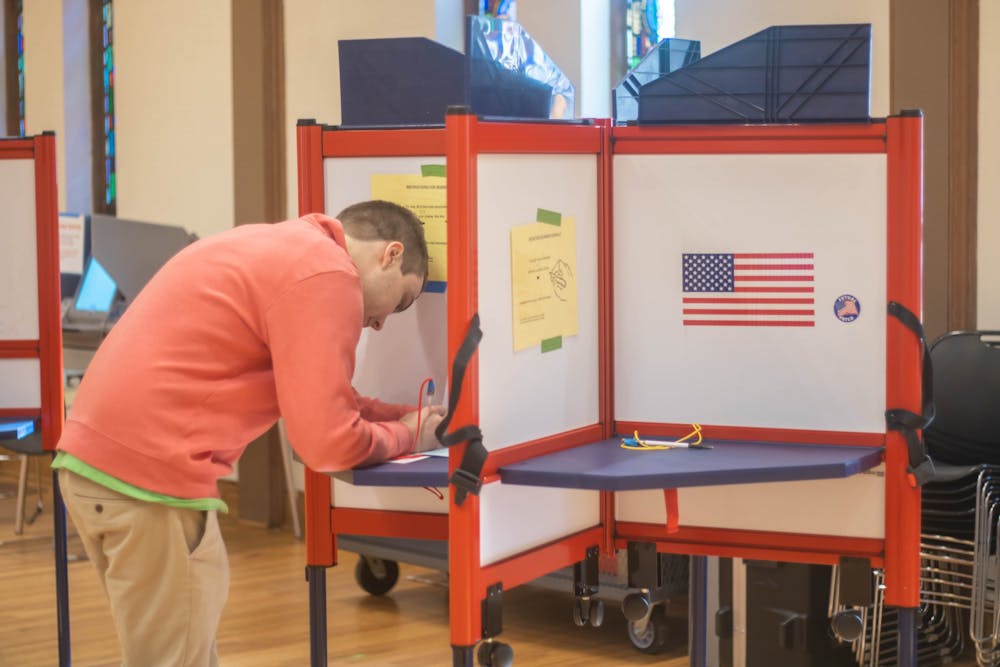Only 13.8 percent of registered North Carolina voters showed out to vote in 2023 municipal elections. Voting allows each individual to elect officials who will make decisions that impact their own lives and those around them, and it is a staple of American democracy – yet most people don't engage with politics.
With the upcoming 2024 presidential election most likely sporting two objectionable candidates — current President Joe Biden and former President Donald Trump — many people said they won’t be voting. Forty-nine percent of people aged 18-to-29 say they definitely will. That's eight percentage points down from the 2020 election. This statement is detrimental not only to democracy but also to the people who implemented policies will affect most.
Consciously choosing not to participate in politics — whether it be voting or simply discussing it — demonstrates immense privilege.
In general, Americans are discouraged by the state of national politics, with 30 percent of people saying that they dislike both the Republican and Democratic parties — a record high. Only 16 percent of adults in America said they trusted the federal government, which is among the lowest levels in 70 years of polling.
This distrust of the national government can be traced back to a lack of quality candidates and elected officials, which can mainly be improved by an increase in voter turnout.
Some Americans said that they don’t keep up with politics or don’t care who’s running, but those are the statements that show privilege the most.
Being able to not care about the affairs around you shows that the decisions being made don’t affect you as much as they do others. It shows a lack of understanding of their impacts on other Americans.
The presidential options this year might not be the best — with each candidate being way over the average retirement age and one being charged with 91 criminal offenses — but acting aloof toward the outcome of the election is not the answer.
Rather than focusing on the candidates, a better approach would be to focus on their platforms and the goals they hope to achieve in office – like deciding whether to prioritize a candidate who supports an extremely deadly border along the southern states of the U.S. or one who supports a reformation of the immigration system.




